#Free CRM Software For Small Business
Explore tagged Tumblr posts
Text

Boost Your Business with the Best CRM for Small Businesses
#free crm for small business#small business crm#best crm for small business#crm software for small business#free crm software for small business
0 notes
Text
https://flowrocket.com/finance
#Accounting Advisory Servies USA#Accounting and Bookkeeping services for Business#Accouting and Bookkeeping services USA#Best Auditing Services in USA#Hire Accounting Associates in USA#Hire Audit Supervisor in USA#Hire Bookkeeping Associates in USA#Best CRM Software with Collaboration Tools#CRM solutions for Team Colloboration#Best construction CRM Software#CRM Solutions for Construction Management#Best contract management systems in USA#CRM Software for document management#Best CRM for customer support#CRM for customer service solutions#Customer service software in USA#Agile software development services USA#Business Process Automation USA#IT Consulting Service in USA#Lead management CRM software#Lead tracking CRM software#Best CRM for Financial Services#Financial Services CRM Software#Best GRC Software Solutions in USA#CRM for small businesses#CRM Solutions#Top CRM Software USA#Best CRM Software in USA#Industry Specific CRM Solutions#best free crm for insurance agents
0 notes
Text
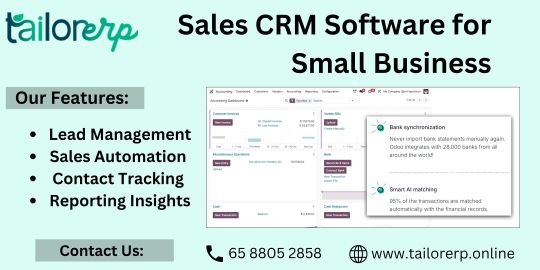
Sales CRM Software for Small Business
Sales CRM software for small businesses offers an all-in-one solution to streamline customer relationship management and financial tasks. With features like lead management, sales automation, and contact tracking, these platforms help businesses manage their sales pipelines efficiently. They also integrate seamlessly with accounting tools to provide real-time reporting and automate invoicing. Designed for small businesses, these CRM systems ensure better customer service, enhance sales processes, and help businesses stay organized, allowing them to focus on growth and improve overall operational efficiency.
#free sales crm software#sales crm software for small business#sales pipeline crm software#free crm software singapore
0 notes
Text
HR and Accounting ERP software provider in India/ Oman
At InshaSIS, we have earned a huge expertise to implement and customize ERPNext. Being a robust and versatile software, ERP development makes workflow smooth, optimizes resource uses, etc.
#erp systems#erp software in india#free erp software in muscat#erp for small business#inventory management#crm software
0 notes
Text
Transforming Processes: Unveiling the Key Milestones in Immigration CRM Development
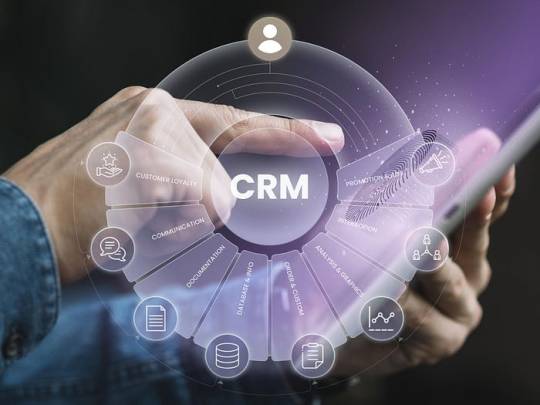
1. Needs Assessment: The journey begins with a comprehensive needs assessment, where the specific requirements and challenges of immigration services are thoroughly examined. This phase lays the groundwork for understanding the unique processes that the CRM must address.
2. Regulatory Compliance Integration: Ensuring adherence to immigration regulations is non-negotiable. A milestone in CRM development involves the seamless integration of all relevant compliance standards and legal requirements. This ensures a secure and compliant platform for handling sensitive immigration data.
3. User Requirement Specification (URS): Crafting a successful CRM involves collaboration with immigration officers, case managers, and stakeholders. The User Requirement Specification document becomes a milestone, serving as a blueprint that outlines the functionalities and features essential for the system’s success.
4. Customization for Immigration Processes: One size does not fit all, especially in the complex realm of immigration. A significant milestone is achieved by tailoring the CRM system to accommodate the intricacies of immigration processes, from application processing to document verification.
5. Integration with Government Databases: Real-time data verification is a game-changer, facilitated by a top-notch CRM development company. The integration of the CRM system with government databases becomes a pivotal milestone, ensuring accuracy in processing applications and maintaining up-to-date records.
6. Document Management System: Managing the extensive paperwork associated with immigration processes requires a sophisticated Document Management System within the CRM. This milestone involves creating a secure environment for the storage, retrieval, and sharing of crucial documents.
7. Communication and Notifications: Transparency and effective communication are keystones in immigration services. The development milestone here involves implementing communication tools that facilitate seamless interaction between immigration officers, applicants, and relevant authorities.
8. Biometric Data Integration: In cases where biometric data is part of the immigration process, a milestone is achieved by seamlessly integrating biometric data handling capabilities, expertly executed by a leading CRM development company. This ensures secure and compliant storage of fingerprints, facial recognition data, or other biometric information.
9. Mobile Accessibility: Acknowledging the mobility required in immigration services, a significant milestone is the development of a mobile-friendly version of the CRM system. This facilitates on-the-go access for immigration officers, enhancing their ability to manage tasks efficiently.
10. Training and Adoption: A milestone often overlooked is the successful training and adoption of the CRM system. Implementing a comprehensive training program ensures that immigration officers and staff are proficient in using the CRM, maximizing its potential.
Conclusion: The journey of developing an Immigration CRM is a transformative one, marked by critical milestones that pave the way for enhanced efficiency, accuracy, and transparency in immigration processes. It is the collaborative effort of a skilled CRM development company that turns these milestones into a seamless, efficient, and future-ready solution for immigration services. The result? A transformative CRM that empowers immigration services to navigate their processes with unprecedented ease and effectiveness.
#crm#crm development company#free crm software development#free crm development#crm software for small business#india#united states#canada#crm for small companies#crm development#codingcafe#crm developers#crm for small business
0 notes
Text
Customer Relationship Management - CRM Software App
Discover the power of effective customer relationship management with CRM Software App. Streamline interactions, boost productivity, and elevate your business game. Experience seamless connections for success like never before!
#Customer Relationship Management#CRM Software App#small business crm#free invoice generator#“time management”
0 notes
Text
How to Choose the Best CRM Tool for Your Small Business?
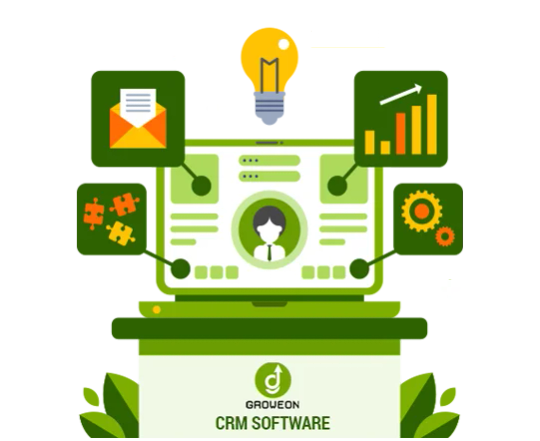
One out of five small businesses fail within the first year. No, this is not to demotivate you but to show you the reality of how important the first five years of a small business are. Most small businesses struggle to deal with customers as customers have different needs, and managing all your different customers feels next to impossible; that’s why you need CRM software.
Customer relationship management (CRM) software has revolutionised the way businesses interact with customers. It helps reduce the need for manual input by automating key processes like tracking customer interactions, managing leads, and organising sales pipelines. CRM software is proven to increase business productivity and efficiency and improve overall customer satisfaction.
Before you put your skates on and look for a CRM tool, it is crucial to choose a CRM tool that is perfect for your business, as the internet is flooded with tons of CRM software. Here are the key factors to consider when selecting the best CRM tool for your small business.
1. Identify Your Business Needs
Before diving into the technical details of various CRM tools, it’s important to clearly identify your business’s unique needs. Ask yourself questions like:
- What are your current pain points in customer management?
- Are you looking to streamline sales, marketing, or customer service processes?
- How many people will be using the CRM system?
Once you understand your specific goals, choosing CRM software will be quite easy for you as you can prioritise what features the software must have.
2. User-Friendly Interface
As a small business, you most likely won’t have a tech-savvy and highly experienced team, so it is crucial to choose CRM software with a user-friendly interface. A simple and user-friendly interface will allow your team to quickly adapt and use the software efficiently. Look for a CRM that offers an intuitive dashboard, easy navigation, and simple data entry processes.
Additionally, many CRM tools offer free trials, so take advantage of this to assess whether the platform is easy for your team to use and navigate.
3. Affordability
Most small businesses don’t have massive profits and income-generating revenues, so it is crucial not to get overexcited and choose CRM software that suits your budget. CRM software with more features and capabilities will cost more, so it is vital to understand your business needs and opt for a CRM that doesn’t break the bank and gets the job done. Groweon CRM software is quite affordable and has tons of features, so it is a great choice for small businesses.
4. Scalability
As your business grows, your CRM should be able to grow with you. Look for a CRM solution that offers scalable features so that you don’t outgrow the tool as your customer base expands. A scalable CRM will allow you to add new users, customise workflows, and integrate additional tools without disruption.
Choosing a CRM that can scale alongside your business will save you the hassle of transitioning to a new platform as your needs evolve.
5. Mobile Accessibility
In today’s fast-paced business environment, having access to your CRM data on the go is essential. Mobile accessibility enables you to update and access customer information, track sales, and communicate with your team from anywhere. This is particularly useful for small business owners or sales teams who spend a significant amount of time out of the office.
Ensure that the CRM tool you choose offers a robust mobile application that is easy to use and provides the same level of functionality as its desktop version.
6. Customer Support
Reliable customer support is crucial, especially when you’re first implementing a CRM system. Small businesses often lack the in-house expertise to troubleshoot technical issues, so having access to a responsive support team can make a significant difference.
Look for CRM providers that offer 24/7 customer support, training resources, and user communities. Some CRM tools even offer dedicated account managers for small businesses, ensuring that you get personalised help whenever needed.
Conclusion
Choosing the best CRM tool for your small business can make a world of difference to your business’s operations and massively improve productivity. No matter what industry you are in, ideal CRM software can transform the way you manage customers.
2 notes
·
View notes
Text
What is the best web-based enterprise accounting software?
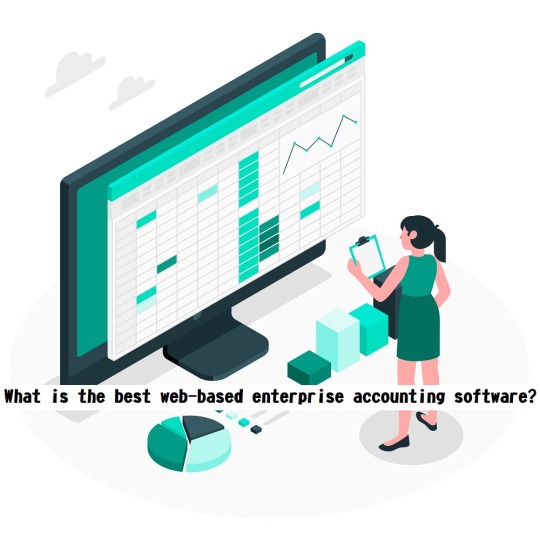
In the fast-paced and ever-evolving landscape of business, staying on top of your finances is crucial. As enterprises expand their operations, managing accounts efficiently becomes a daunting task. Thankfully, with the advent of technology, businesses now have access to a plethora of web-based enterprise accounting software options to streamline their financial processes. In this comprehensive guide, we will explore the ins and outs of web-based enterprise accounting software, helping you make an informed decision on the best solution for your business needs.
Understanding Web-Based Enterprise Accounting Software
Web-based enterprise accounting software, often referred to as cloud accounting software, is a digital solution that allows businesses to manage their financial activities online. Unlike traditional accounting systems that rely on on-premise software, web-based accounting tools operate in the cloud, offering users the flexibility to access their financial data from anywhere with an internet connection.
Advantages of Web-Based Enterprise Accounting Software
1. Accessibility
One of the primary advantages of web-based accounting software is accessibility. With data stored securely in the cloud, users can access their financial information anytime, anywhere. This proves especially beneficial for enterprises with multiple locations or remote teams, fostering collaboration and efficiency.
2. Cost Efficiency
Web-based accounting solutions often follow a subscription-based model, eliminating the need for costly upfront investments in software and hardware. This cost-effective approach makes it easier for businesses to scale their accounting infrastructure according to their needs without breaking the bank.
3. Real-Time Updates
In the dynamic world of business, real-time data is invaluable. Web-based accounting software provides instant updates, ensuring that users have access to the most recent financial information. This feature is crucial for making informed decisions and adapting to market changes promptly.
4. Automatic Updates and Maintenance
Gone are the days of manual software updates and maintenance. With web-based accounting solutions, updates are automatic, and maintenance is handled by the service provider. This frees up valuable time for businesses to focus on core operations rather than managing software updates.
Features to Look for in Web-Based Enterprise Accounting Software
1. User-Friendly Interface
A user-friendly interface is essential for ensuring that your team can navigate the software seamlessly. Look for solutions with intuitive dashboards and easy-to-understand features to minimize the learning curve for your staff.
2. Scalability
As your enterprise grows, so do your accounting needs. Choose a web-based accounting solution that can scale with your business, accommodating increased transaction volumes and additional users without compromising performance.
3. Integration Capabilities
Efficient accounting doesn't happen in isolation. Ensure that the web-based accounting software you choose integrates seamlessly with other essential business tools, such as CRM systems, project management software, and e-commerce platforms.
4. Security
The security of your financial data should be a top priority. Opt for web-based accounting software that employs robust encryption protocols and follows industry best practices for data protection. Additionally, check for features such as multi-factor authentication to add an extra layer of security.
Top Contenders in the Web-Based Enterprise Accounting Software Market
1. MargBooks
MargBooks Online is a India's popular online accounting solution known for its user-friendly interface and robust features. It offers a range of plans to suit businesses of all sizes and provides tools for invoicing, expense tracking, and financial reporting.
2. Xero
Xero is another cloud accounting software that caters to small and medium-sized enterprises. With features like bank reconciliation, inventory management, and payroll integration, Xero is a comprehensive solution for businesses looking to streamline their financial processes.
3. NetSuite
NetSuite, owned by Oracle, is a cloud-based ERP (Enterprise Resource Planning) solution that includes robust accounting functionalities. It is suitable for larger enterprises with complex financial needs and offers features such as financial planning, revenue recognition, and multi-currency support.
4. Zoho Books
Zoho Books is part of the Zoho suite of business applications and is designed for small and medium-sized enterprises. It provides features such as automated workflows, project billing, and collaborative client portals, making it a versatile choice for businesses with diverse needs.
Making the Right Choice for Your Business
Choosing the best web-based enterprise accounting software for your business requires careful consideration of your specific needs and objectives. Here are some steps to guide you through the decision-making process:
1. Assess Your Business Requirements
Start by identifying your business's specific accounting requirements. Consider factors such as the number of users, the complexity of your financial transactions, and the need for integration with other business applications.
2. Set a Budget
Determine a realistic budget for your accounting software. While web-based solutions often offer cost savings compared to traditional software, it's essential to choose a solution that aligns with your financial resources.
3. Explore Free Trials
Many web-based accounting software providers offer free trials of their platforms. Take advantage of these trials to explore the features and functionalities of different solutions before making a commitment.
4. Seek Recommendations and Reviews
Consult with other businesses in your industry or network to gather recommendations and insights. Additionally, read reviews from reputable sources to gain a better understanding of the user experiences with different accounting software options.
The Evolution of Web-Based Enterprise Accounting Software
As technology continues to advance, so does the landscape of web-based enterprise accounting software. The evolution of these platforms is driven by the ever-changing needs of businesses and the ongoing developments in cloud technology. Let's delve deeper into the evolving trends shaping the future of web-based accounting solutions.
1. Artificial Intelligence (AI) and Automation
The integration of artificial intelligence and automation is revolutionizing how businesses handle their financial processes. Modern web-based accounting software is incorporating AI algorithms to automate repetitive tasks, such as data entry and invoice categorization. This not only increases efficiency but also minimizes the risk of human error.
2. Enhanced Data Analytics
In the age of big data, the ability to derive meaningful insights from financial data is paramount. Advanced web-based accounting solutions are now equipped with powerful data analytics tools. These tools help businesses analyze trends, forecast future financial scenarios, and make data-driven decisions.
3. Mobile Accessibility
The shift towards mobile accessibility is a notable trend in web-based enterprise accounting software. Businesses are increasingly relying on mobile devices for day-to-day operations, and accounting software providers are responding by offering mobile-friendly applications. This allows users to manage their finances on the go, providing unparalleled flexibility.
4. Integration with E-Commerce Platforms
As e-commerce continues to thrive, businesses are looking for accounting solutions that seamlessly integrate with their online sales platforms. Modern web-based accounting software often includes features tailored for e-commerce, such as automated transaction reconciliation with online sales channels and inventory management.
5. Blockchain Technology
Blockchain technology is making waves in various industries, and accounting is no exception. Some web-based accounting solutions are exploring the integration of blockchain for enhanced security and transparency in financial transactions. This could revolutionize how businesses handle aspects like auditing and transaction verification.
Common Challenges and How to Overcome Them
While web-based enterprise accounting software offers numerous benefits, it's important to be aware of potential challenges and how to overcome them. Here are some common issues businesses may face:
1. Security Concerns
The sensitive nature of financial data raises concerns about security in the cloud. To address this, choose a web-based accounting solution that employs robust encryption protocols and complies with industry security standards. Additionally, educate your team about best practices for secure online behavior.
2. Connectivity Issues
Reliable internet connectivity is crucial for accessing web-based accounting software. In regions with unstable internet connections, businesses may face challenges in real-time collaboration and data accessibility. Consider implementing backup solutions for offline access or explore accounting software with offline capabilities.
3. Customization Needs
Every business has unique accounting requirements. Some businesses may find that certain web-based accounting solutions lack the level of customization they need. In such cases, explore platforms that offer extensive customization options or consider integrating additional specialized accounting tools.
4. Data Ownership and Control
Understanding the terms of service and data ownership is essential when using web-based accounting software. Ensure that the chosen platform allows you to retain control over your financial data and provides mechanisms for data export in case of migration to a different system.
Conclusion: Making the Right Choice for Long-Term Success
In the fast-paced world of business, the right web-based enterprise accounting software can be a game-changer. Whether you're a small startup or a large enterprise, the key is to stay informed about the latest advancements in accounting technology and align your choice with the long-term goals of your business.
As you navigate the vast landscape of web-based accounting solutions, remember that the best choice is the one that seamlessly integrates with your business processes, enhances efficiency, and adapts to the evolving needs of your enterprise. If you have any specific questions or need further guidance on a particular aspect of web-based accounting software, feel free to ask for more information!
Also read- Online billing and accounting software to manage your business
#Web-based accounting#Cloud software#Financial management#Enterprise solutions#accounting#software#billing#online billing software#technology#programming#erp#tech#drawings#illlustration#artwork#art style#sketchy#art#aspec#aromantic asexual#arospec#acespec#aroace#aro#bg3#astarion#shadowheart#gale dekarios#gale of waterdeep#karlach
2 notes
·
View notes
Text
Boost Your Business with the Best CRM for Small Businesses
#small#best crm for small business#free crm for small business#crm software for small business#free crm software for small business
0 notes
Text
#Accounting Advisory Servies USA#Accounting and Bookkeeping services for Business#Accouting and Bookkeeping services USA#Best Auditing Services in USA#Hire Accounting Associates in USA#Hire Audit Supervisor in USA#Hire Bookkeeping Associates in USA#Best CRM Software with Collaboration Tools#CRM solutions for Team Colloboration#Best construction CRM Software#CRM Solutions for Construction Management#Best contract management systems in USA#CRM Software for document management#Best CRM for customer support#CRM for customer service solutions#Customer service software in USA#Agile software development services USA#Business Process Automation USA#IT Consulting Service in USA#Lead management CRM software#Lead tracking CRM software#Best CRM for Financial Services#Financial Services CRM Software#Best GRC Software Solutions in USA#CRM for small businesses#CRM Solutions#Top CRM Software USA#Best CRM Software in USA#Industry Specific CRM Solutions#best free crm for insurance agents
0 notes
Text
Unlocking Exponential Growth: Mastering Compounding Advantage in SMBs with Proven Strategies
In the dynamic world of small and medium-sized businesses (SMBs), compounding advantage is a key driver for sustainable growth. This blog will explore how SMBs can leverage this powerful strategy for scalable success, illuminated by real-life examples.
Understanding Compounding Advantage in Business
Compounding advantage (Econ term) is akin to a snowball effect in business, where initial gains are built upon, leading to exponentially greater growth over time. For SMBs, this means transforming initial successes into a positive, self-reinforcing cycle of progress.
Key Areas for Compounding Growth in SMBs
1. Customer Loyalty: Prioritizing customer satisfaction is critical. A study by Bain & Company revealed that a 5% increase in customer retention can increase profits by 25% to 95%.
2. Brand Reputation: Consistent quality and service enhance brand reputation, organically growing the business.
3. Technology and Automation: Technology investments can lead to compounding efficiencies over time, which is crucial for scalable growth.
Real-Life Success Stories
1. Retail Example: Barnes & Noble saw success with their subscription-based loyalty program, offering exclusive discounts and free shipping. This created a significant customer retention effect.
2. E-commerce Example: Amazon Prime demonstrates the power of a well-crafted subscription-based loyalty program. Prime members spend significantly more annually than non-Prime customers, highlighting the program’s effectiveness in customer retention and spending.
3. Digital Engagement Example: TheCHIVE, a photo entertainment website, used gamification to enhance customer engagement. Their approach contributed significantly to their annual revenue and site visits.
4. Fashion E-commerce Example: Lively implemented a loyalty program that increased customer lifetime value and average spend, showcasing the benefits of engaging loyalty strategies.
5. Consulting Services Example: CRM software’s (Salesforce, HubSpot, Zoho, etc.) impact on SMBs is notable. Companies utilizing CRM have seen a reduction in sales cycles by 8-14%, emphasizing the importance of technology in customer relationship management.
A Step-by-Step Guide to Compounding Your Business Growth
Identify Growth Areas: Pinpoint aspects of your business ripe for compounding growth.
Measure and Track: Regularly monitor and track progress using metrics and analytics.
Maintain Consistency: Regular reviews and adjustments are key to maintaining compounding growth.
Overcoming Challenges
Challenges like budget constraints and resistance to change are common. Overcoming these requires a strategic focus on long-term benefits.
Path to Exponential Growth
Compounding advantage is a vital tool for SMBs. By focusing on customer satisfaction, technology, and brand reputation, businesses can set themselves on a trajectory of exponential growth.
4 notes
·
View notes
Text
Leadpages Review 2023 : Pros and Cons
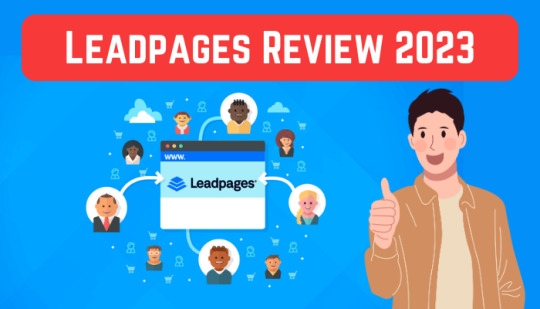
Introduction
LeadPages is a powerful and highly respected platform when it comes to online marketing and website optimization. In this comprehensive LeadPages review, we’ll explore its features, usability, and potential for businesses looking to increase their online presence and conversion rates.
LeadPages offers an array of tools and functionality designed to help businesses and marketers create compelling landing pages, websites and pop-ups. With its user-friendly interface and plenty of templates, LeadPages enables users to design and launch professional and high-converting web assets without the need for extensive coding or design skills.
A major highlight of LeadPages is the focus on conversion rate optimization. The platform provides a suite of features aimed at user engagement, lead generation and sales growth. From customizable landing page templates to A/B testing, LeadPages equips users with the tools they need to continually refine and improve their online marketing campaigns.
Additionally, LeadPages integrates seamlessly with popular email marketing and CRM platforms, allowing users to streamline their lead management and customer relationship processes. The software’s analytics and reporting capabilities provide insight into your campaign performance, enabling data-driven decision-making and optimization.
Small businesses, entrepreneurs, and even larger enterprises find value in LeadPages because of its versatility and scalability. Whether you’re looking to create a simple landing page or an entire website, LeadPages can accommodate a variety of needs and goals. Its extensive library of templates caters to various industries and purposes, making it an excellent choice for a wide spectrum of users.
In this review, we’ll explore the features and functionality of LeadPages in detail, examining how it can benefit businesses of all sizes. From its drag-and-drop page builder to its advanced marketing and lead generation tools, we’ll uncover how LeadPages can be a valuable asset in your online marketing toolkit.
Leadpages Review: Overview
LeadPages is a comprehensive online marketing platform renowned for its versatility and functionality. It empowers businesses and marketers by providing a wide range of tools for website creation and conversion rate optimization.
With a user-friendly interface and an extensive template library, LeadPages simplifies the process of creating high-quality landing pages, websites and pop-ups, making it accessible to users of all skill levels. What sets LeadPages apart is its dedicated focus on increasing conversion rates It provides A/B testing, lead generation forms and seamlessly integrates with email marketing and CRM platforms. In this overview, we’ll explore how LeadPages can help businesses increase their online presence and drive results.
Try Leadpages For Free
What are Leadpages?
Leadpages is a versatile online marketing platform that caters to two primary sectors: website development and conversion rate optimization. When it comes to website creation, Leadpages empowers businesses and marketers to create professional and visually appealing landing pages, websites and pop-ups without the need for extensive coding or design skills. It offers a user-friendly interface and a huge library of customizable templates, making it an ideal choice for those looking to establish a strong online presence.
Leadpages, on the other hand, excel at conversion rate optimization. It offers various tools and features designed to increase user engagement, increase lead generation and increase sales. From A/B testing to lead capture forms, Leadpages equips users with resources to continually refine and improve their online marketing efforts.
Additionally, LeadPages integrates seamlessly with popular email marketing and CRM platforms, streamlining lead management and customer relationship processes. Its powerful analytics and reporting capabilities provide valuable insights into campaign performance, facilitating data-driven decision-making and campaign optimization.
This dual-sector approach sets LeadPages apart as a versatile and valuable platform, meeting the needs of businesses of all sizes. Whether you’re looking to build a single landing page or an entire website, LeadPages provides the tools and flexibility to help you efficiently achieve your online marketing goals.
View More
3 notes
·
View notes
Text
Unleashing the Power of Free CRM Software for Your Business

Hello there! It’s Paul here, and today we’re going to unlock secrets of a tool that can revolutionize your customer relationships. We’re talking about free CRM software. If you’re on a budget but keen to streamline your business operations, buckle up because we’re about to set you on the right path.
Free CRM software like HubSpot CRM, Agile CRM, Apptivo, Really Simple Systems, and Flowlu are game-changers in the market. But how do you decide which one is best for you? Let’s get into it.
Grasping the Power of Top Free CRM Software
HubSpot CRM and Agile CRM are two gems in the world of free CRM. Each has its distinct forte.
HubSpot CRM is a master at handling marketing CRM features. Its custom fields, deal stages, and contact properties allow you to shape the tool according to your business’s unique requirements.
Agile CRM excels at customer service. It too offers customization options, making it easy for businesses to modify the system to their needs.
Both provide robust customization options, enabling businesses to tailor the software to their specific requirements.
The Hidden Price Tags of Free CRM
While free CRM software can be a boon for small teams and businesses, they do come with some constraints. These include limitations on maximum users, contacts, and company records.
When these limitations start hindering your progress, it’s worth considering upgrading to a paid plan. These usually offer more users, contacts, records as well as some exciting bonus features.
Maximizing Efficiency with CRM Integration
In today’s digital world, integration is key. Merging your CRM with other tools enables seamless syncing and resource sharing. Here’s why it matters:
Efficient Resource Sharing: Integration allows for easy sharing of customer data, documents, and communication history.
Streamlined Workflows: Automated tasks save time and reduce errors.
Improved Customer Insights: Integration provides a complete view of customer interactions.
Enhanced Productivity: Integrated tools ensure everyone is on the same page.
Answering Your Burning Questions about Free CRM
How to choose the best free CRM? What about customization? Are there hidden costs? Can you easily import and export data? What kind of customer support is available?
I’ll be answering all these questions (and more) in our comprehensive guide.
In conclusion - selecting the best free CRM software boils down to your specific needs and limitations. And remember, don’t hesitate to upgrade when you see the need. It could unlock the full potential of your CRM!
Keep hustling, stay inspired, and let’s take your business to new heights! Paul
3 notes
·
View notes
Text
CUSTOMER-CENTRIC EXCELLENCE: A DEEP DIVE INTO INDIA’S TOP 10 CRM COMPANIES
In the dynamic landscape of customer relationship management (CRM), India stands out for its vibrant market, where businesses are actively leveraging CRM solutions to enhance customer interactions and drive growth. Let’s take a closer look at the top 10 CRM companies in India that have mastered the art of customer-centric excellence.

1. Salesforce India:
Salesforce, a global CRM giant, has left an indelible mark on India’s business landscape. Renowned for its cloud-based CRM solutions, Salesforce empowers businesses with a 360-degree view of their customers, fostering personalized interactions and streamlined processes.
2. Zoho CRM:
Zoho CRM has become synonymous with user-friendly interfaces and robust functionalities. Offering a comprehensive suite of CRM tools, Zoho caters to businesses of all sizes, emphasizing customization and scalability.
3. Freshworks CRM:
Formerly known as Freshsales, Freshworks CRM has gained popularity for its intuitive interface and AI-driven insights. It focuses on automating sales processes and providing businesses with the tools they need to nurture customer relationships.
4. HubSpot:
HubSpot’s CRM platform seamlessly integrates with its marketing and sales tools, offering a holistic approach to customer engagement. Known for its inbound methodology, HubSpot helps businesses attract, engage, and delight customers.
5. Microsoft Dynamics 365:
Microsoft’s CRM solution, Dynamics 365, combines CRM and enterprise resource planning (ERP) capabilities. This integration allows businesses to break down silos, providing a unified platform for customer engagement and operational efficiency.
6. Oracle NetSuite:
Oracle NetSuite offers cloud-based ERP and CRM solutions designed to streamline business processes. With a focus on scalability, NetSuite caters to businesses at various stages of growth, from startups to large enterprises.
7. SAP CRM:
SAP, a global leader in enterprise software, extends its prowess to CRM solutions. SAP CRM provides businesses with tools to manage customer relationships efficiently, leveraging data insights for strategic decision-making.
8. Insightly:
Insightly stands out for its CRM and project management integration. It empowers businesses to manage customer relationships and streamline project workflows, enhancing overall organizational efficiency.
9. SugarCRM:
SugarCRM distinguishes itself with its open-source CRM solutions, providing businesses with flexibility and customization options. It focuses on delivering a highly personalized customer experience, aligning with individual business needs.
10. Apptivo:
Apptivo offers a comprehensive suite of business applications, including CRM. With an emphasis on affordability and simplicity, Apptivo caters to small and medium-sized businesses, providing them with essential tools for effective customer management.
The Essence of Customer-Centric Excellence:
What sets these CRM companies apart is their commitment to customer-centric excellence. In a world where customer experience is a key differentiator, these companies go beyond transactional relationships. They prioritize understanding customer needs, delivering personalized experiences, and building long-term loyalty.
Key Features of Customer-Centric CRM:
360-Degree Customer View: These CRM platforms provide a holistic view of customer interactions, enabling businesses to understand preferences, history, and pain points.
Automation and AI: Automation and artificial intelligence are seamlessly integrated into these CRM solutions, automating routine tasks and providing valuable insights for strategic decision-making.
Scalability: The ability to scale is crucial for growing businesses. These CRM platforms offer scalability, ensuring that as businesses expand, their CRM systems can adapt to evolving needs.
Integration Capabilities: Integration with other business applications, such as marketing and project management tools, allows for a cohesive and synchronized approach to business operations.
User-Friendly Interfaces: An intuitive and user-friendly interface is a hallmark of these CRM solutions. This ensures that businesses can harness the full power of CRM without facing a steep learning curve.
Conclusion:
The realm of Top 10 CRM companies in India are not just providers of software; they are architects of customer-centric success stories. As businesses continue to prioritize customer experience, the role of CRM becomes even more pivotal. Whether it’s Salesforce’s cloud dominance or Zoho’s emphasis on customization, each company contributes to India’s dynamic CRM landscape, propelling businesses toward customer-centric excellence.
#crm development#top 10 crm companies in india#free crm for small business#crm development companies#crm developers#codingcafe#canada#mohali#crm development company#crm development in india#crm software for small companies#USA#India#Canada#crm solutions
1 note
·
View note
Text
Contract Management Software - CRM Software App
Elevate your contract management game with CRM Software App's cutting-edge Contract Management Software. Enhance efficiency, reduce risks, and improve compliance. Explore our solutions today for seamless contract handling.
#Contract Management Software#CRM Software App#crm for small business#document management software#free invoice generator
0 notes
Text
How to Choose the Right Accounting Software for Your Small Business

As a small business owner, you need an accounting system that helps you stay organized and manage your finances efficiently. But with so many accounting software options available, it can be overwhelming to choose the right one for your business. In this blog, we’ll guide you through the process of selecting the right accounting software for your small business.
Assess Your Business Needs
The first step in choosing the right accounting software is to evaluate your business needs. Consider the size and complexity of your business, the number of transactions you process, and your accounting skills. This will help you determine the features and functionality you need in an accounting system.
Choose Between Desktop or Cloud-based Software
The next step is to decide whether you want a desktop or cloud-based accounting system. Desktop software is installed on your computer and accessed through a local network, while cloud-based software is accessed through the internet and stored on remote servers.
Desktop software can be more secure, but it requires more maintenance and may limit your ability to work remotely. Cloud-based software is more flexible and accessible from anywhere, but may be less secure if you don't take the necessary precautions.
Look for Essential Features
When evaluating accounting software, look for essential features such as invoicing, expense tracking, and financial reporting. Make sure the software can handle your specific business needs, such as tracking inventory or managing payroll. Some other important features to consider include:
Multi-user access: If you have multiple employees who need to access the accounting system, make sure the software allows for multi-user access and offers different user permission levels.
Integration with other software: Look for accounting software that integrates with other software you use, such as CRM or project management software.
Mobile accessibility: If you need to access your accounting system on-the-go, choose software with mobile accessibility.
Consider Ease of Use
The last thing you want is to invest time and money in an accounting system that’s too complicated to use. Look for software that’s user-friendly and offers easy-to-understand reporting and analytics. Some accounting software even offers tutorials and support to help you get started.
Compare Pricing Plans
Lastly, consider the pricing plans offered by different accounting software providers. Some providers offer a free trial period, so take advantage of this to test out the software and see if it’s a good fit for your business. Look for software with transparent pricing and no hidden fees. Some providers charge based on the number of users or transactions, so make sure you understand the pricing structure before you commit.
One accounting software that ticks all these boxes is UpBooks. UpBooks is a cloud-based accounting software that offers invoicing, expense tracking, financial reporting, and more. UpBooks is user-friendly and accessible from anywhere with an internet connection. With UpBooks, you can track your finances, manage your inventory, and even manage your team’s time and attendance. And with transparent pricing, you’ll always know what you’re paying for.
In conclusion, choosing the right accounting software for your small business requires careful consideration of your business needs, software features, ease of use, and pricing. With the right accounting software, you can stay organized and manage your finances efficiently, giving you more time to focus on growing your business. UpBooks is a great option to consider when choosing an accounting software for your small business
5 notes
·
View notes